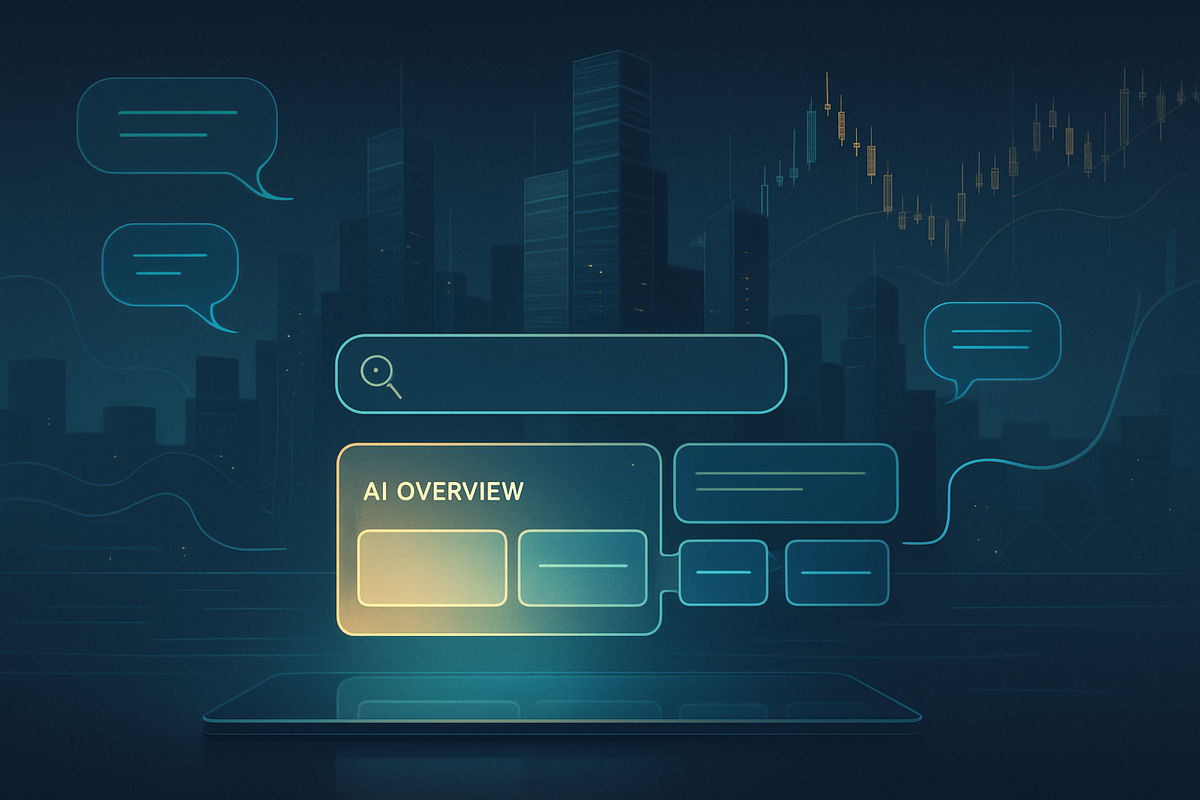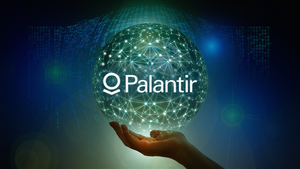
The digital landscape is undergoing a profound metamorphosis, driven by the relentless advancement of artificial intelligence. At the heart of this revolution lies the search market, where conversational AI agents and the emergence of "AI Overviews" are not merely enhancing user experience but fundamentally reshaping the competitive strategies and valuations of global tech giants like Google (NASDAQ: GOOGL). This paradigm shift signals a new era for information retrieval, prompting immediate re-evaluation of long-standing business models and creating both unprecedented opportunities and significant challenges for public companies trading in this dynamic sector.
AI's Ascent in Search: A Shift from Links to Answers
The traditional blue-link search result is rapidly giving way to a more synthesized, conversational experience. This pivotal shift is primarily fueled by Google's aggressive integration of generative AI into its core search engine, exemplified by its "AI Overviews" (part of the Search Generative Experience or SGE) and the broader rollout of "AI Mode." These features, launched in beta in May 2023 and now expanding, provide AI-generated summaries directly at the top of search results, aiming to deliver comprehensive answers without users needing to click through multiple external links. Google reported in May 2025 that AI Overviews are driving over a 10% increase in usage for relevant queries in major markets like the U.S. and India, indicating a higher user satisfaction and an uptick in search frequency for complex questions. The company's "AI Mode" further deepens this experience, offering an end-to-end AI search powered by a custom version of Gemini 2.5, enabling advanced reasoning and multimodal interactions.
This evolution isn't solely confined to Google. A new generation of dedicated conversational AI platforms is rapidly gaining traction. OpenAI's ChatGPT remains a dominant force, reportedly holding an estimated 82.7% market share in the generative AI chatbot space as of September 2025, processing an astonishing 2.5 billion prompts daily worldwide. Hot on its heels is Perplexity AI, a notable competitor that has carved out a 6.2% market share in AI search by 2025, handling over 400 million queries monthly and boasting around 22 million active users. Perplexity distinguishes itself by providing cited, synthesized answers. Meanwhile, Microsoft (NASDAQ: MSFT) has deeply embedded its Copilot AI across its 365 ecosystem and into its Edge browser, offering an "AI Mode" that integrates chat, search, and web navigation, capable of contextual understanding across open tabs. Microsoft has also moved away from "Microsoft Search in Bing" to focus on Copilot agents, signaling its commitment to an AI-first approach. These developments signify a broad industry movement towards providing direct, intelligent answers rather than just a list of links, fundamentally altering user expectations and the competitive playing field.
The impact of these changes on user behavior is already palpable. As of April 2025, 45% of Americans reported using AI-powered search, with approximately one in five relying more on these tools than traditional search methods. Younger demographics, particularly Gen Z and Millennials, show significantly higher adoption rates. A crucial finding from March 2025 reveals that nearly 41% of consumers trust generative AI search results more than paid search results, a stark contrast to the mere 15% who trust it less. This burgeoning trust, coupled with a shift from short keyword queries to longer, more contextual prompts, underscores a profound transformation in how information is sought and consumed. Initial market reactions have been a mix of excitement and apprehension. While the "AI gold rush" has driven significant stock price gains for companies heavily invested in AI, concerns have also emerged regarding the sustainability of these high valuations and the potential disruption to established revenue models, particularly Google's ad-centric business. Alphabet's stock, for instance, has experienced dips following testimonies suggesting a decline in Google searches on platforms like Apple's Safari browser as users reportedly turned to AI tools, prompting debates about the long-term impact on its advertising revenue.
Navigating the New Frontier: Winners and Losers in the AI Search Era
The seismic shift brought about by AI in search is creating a clear delineation between potential winners and losers across the tech and content ecosystems. Companies that adapt swiftly and innovate effectively stand to gain significant market share and valuation, while those clinging to legacy models risk obsolescence.
Among the clearest potential "losers" are traditional publishers and websites heavily reliant on organic search traffic. AI Overviews, by providing direct answers within the search results page, can lead to a phenomenon known as "zero-click searches," effectively reducing the need for users to visit external websites. Some studies suggest that Google's SGE could cost publishers up to $2 billion in ad revenue, with search traffic dropping by 20% to 60%. This interception of user attention directly impacts their ability to monetize content through advertising and subscriptions. Furthermore, Google's long-standing ad-driven revenue model faces scrutiny. While Google maintains that ads will continue to play a vital role, with new formats integrated into the SGE experience, the fundamental shift towards direct answers challenges the traditional placement and efficacy of search ads. Legacy tech firms, generally slow to adopt and integrate AI at scale into their core offerings, also risk being left behind as user expectations and competitive pressures accelerate.
Conversely, the "winners" are emerging from various corners of the tech landscape. AI-enabled Deeptech companies are commanding significantly higher valuations, often 15-20 times their revenue, compared to their non-AI counterparts (6-8 times revenue). This premium is attributed to their ability to accelerate time to market, reduce technical risks through AI-powered simulations, and address broader market needs. Dedicated AI search platforms, such as Perplexity AI, are experiencing exponential growth in valuation and user adoption, underscoring strong investor confidence in their focused approach to AI-first search. Perplexity AI's valuation reached an estimated $20 billion in September 2025, reflecting its success in carving out a niche. Companies that successfully integrate AI into their existing products and services, like Microsoft (NASDAQ: MSFT) with its Copilot offerings across its software suite, are also poised for significant gains, enhancing productivity and user engagement. For content creators, the game has changed: optimizing for AI summaries by producing high-quality, expert-level information (adhering to E-E-A-T principles) becomes paramount for appearing in AI-generated answers, offering a new avenue for visibility and credibility, often perceived as more trustworthy than paid placements. Google (NASDAQ: GOOGL) itself, despite initial concerns, could ultimately emerge as a net winner if it successfully pivots its ad model to integrate seamlessly with AI Overviews and continues to drive overall query volume by enabling users to ask more complex and diverse questions. The company has clarified that overall search volumes are on the rise, suggesting an evolution rather smarten than a decline in its core business.
Broader Implications and Industry Ripples: A New Digital Economy
The integration of AI into the search market transcends individual company valuations; it represents a fundamental shift in the broader digital economy, triggering ripple effects across various industries, prompting regulatory considerations, and drawing parallels to previous technological transformations.
This event fits squarely into the wider industry trend of AI-driven automation and intelligent augmentation. AI is increasingly viewed as a general-purpose technology, akin to electricity or the internet, capable of boosting efficiency, fostering innovation, and creating entirely new business models. Experts predict that AI's biggest impact will be increased efficiency and production (44%), followed by the emergence of new business models and opportunities (16%). The shift in search signifies a move towards intelligent agents that can understand context, synthesize information, and proactively assist users, pushing the boundaries of what digital platforms can achieve. This trend extends beyond general search to specialized AI search solutions, such as Elastic's AI-powered search for observability and security markets, demonstrating the versatility and depth of AI's application.
The ripple effects on competitors and partners are extensive. For SEO agencies, the focus shifts from traditional keyword ranking to "answer engine optimization" – ensuring content is structured and authoritative enough to be chosen and summarized by AI Overviews. Advertising agencies must adapt their strategies to account for reduced organic clicks and the prominence of AI-generated answers, potentially exploring new ad formats native to AI search experiences. Regulatory and policy implications are also coming to the forefront. Google's strengthening search position, with some court findings suggesting AI Overviews have actually bolstered its market share by increasing search queries by 1.5% to 2%, could intensify ongoing antitrust scrutiny. Policymakers are grappling with issues surrounding data privacy, algorithmic bias, and the potential for "hallucinations" or misinformation generated by AI, raising questions about accountability and content veracity. Historically, such fundamental shifts in information access have reshaped industries. Comparisons can be drawn to the advent of the internet itself, the transition from desktop to mobile, or the rise of social media. Each shift forced incumbents to adapt or face irrelevance, while simultaneously creating fertile ground for new players to emerge and thrive. The AI search revolution appears to be another such epochal moment, promising to redefine how we interact with information and the digital world.
The Road Ahead: Navigating the AI Search Horizon
As AI continues its rapid integration into the search market, the landscape promises continued evolution, demanding strategic pivots, presenting new market opportunities, and posing formidable challenges for all players involved. The coming months and years will be a critical period of adaptation and innovation.
In the short term, we can expect to see further refinement and expansion of AI search features. Google will likely continue to enhance its AI Overviews and "AI Mode," improving accuracy, reducing latency, and integrating more multimodal capabilities. Other players, including Microsoft (NASDAQ: MSFT) with Copilot and specialized AI search engines like Perplexity AI, will push the boundaries of conversational search, potentially leading to more personalized and predictive information discovery. Strategic pivots will be essential for tech companies. Google (NASDAQ: GOOGL) must innovate its ad monetization strategies to align with the AI-first search experience, ensuring that advertising remains effective and valuable even as organic clicks to external sites potentially decrease. This could involve new native ad formats within AI Overviews or a greater emphasis on brand-building within synthesized answers. Content creators and publishers will need to solidify their "answer engine optimization" strategies, focusing on authoritative, high-quality content that AI models can readily summarize and cite.
Long-term possibilities include the emergence of highly specialized AI search agents tailored for specific industries or user needs, moving beyond general web search to provide deep, contextual insights. We might also see a rise in "proactive AI," where search agents anticipate user needs and deliver information before explicitly asked. Market opportunities will arise in areas like AI-powered content creation tools designed to optimize for AI search, advanced analytics to track AI summary appearances, and specialized AI models for niche information retrieval. However, significant challenges remain. Monetization of AI-driven search, particularly for companies that have traditionally relied on ad impressions and clicks, is a paramount concern. Data privacy, the ethical implications of AI-generated content, and the persistent issue of AI "hallucinations" or biases will require continuous attention and robust solutions. Regulatory environments will undoubtedly become more stringent, seeking to balance innovation with consumer protection and fair competition.
Conclusion: A Permanent Reshaping of Information Access
The advent of AI-powered conversational agents and AI Overviews marks a definitive and permanent reshaping of the search market. This is not merely an incremental update but a foundational shift in how humans access and interact with information, with profound implications for technology companies, content creators, and the broader digital economy.
The key takeaway from this transformative period is that the era of simple keyword-to-link search is rapidly waning. Users now expect direct, synthesized, and often conversational answers, valuing efficiency and comprehensive understanding over a list of external websites. This shift fundamentally challenges established business models, particularly those reliant on traditional advertising revenue derived from organic clicks. Companies like Google (NASDAQ: GOOGL) are at the epicenter, navigating the complex task of evolving their core product while simultaneously maintaining their dominant market position and revenue streams. The surge in valuations for AI-focused companies, with NVIDIA (NASDAQ: NVDA) and Microsoft (NASDAQ: MSFT) reaching over $4 trillion in market capitalization by mid-2025, underscores the intense investor confidence in AI as the next major growth driver.
Moving forward, the market will remain highly dynamic and competitive. Success will hinge on continuous innovation in AI capabilities, agile adaptation of business models, and a keen understanding of evolving user expectations. For investors, the coming months will require careful observation of several key indicators: the rate of user adoption for new AI search features, the effectiveness of new monetization strategies deployed by tech giants, the competitive landscape as new AI-first search platforms emerge, and the evolving regulatory environment surrounding AI. The companies that can master the art of delivering intelligent, trustworthy, and efficient information retrieval in an AI-first world will not only secure their place in the future digital economy but also unlock unprecedented value for their stakeholders. This transformation is more than just a technological upgrade; it is a redefinition of information access for generations to come.






